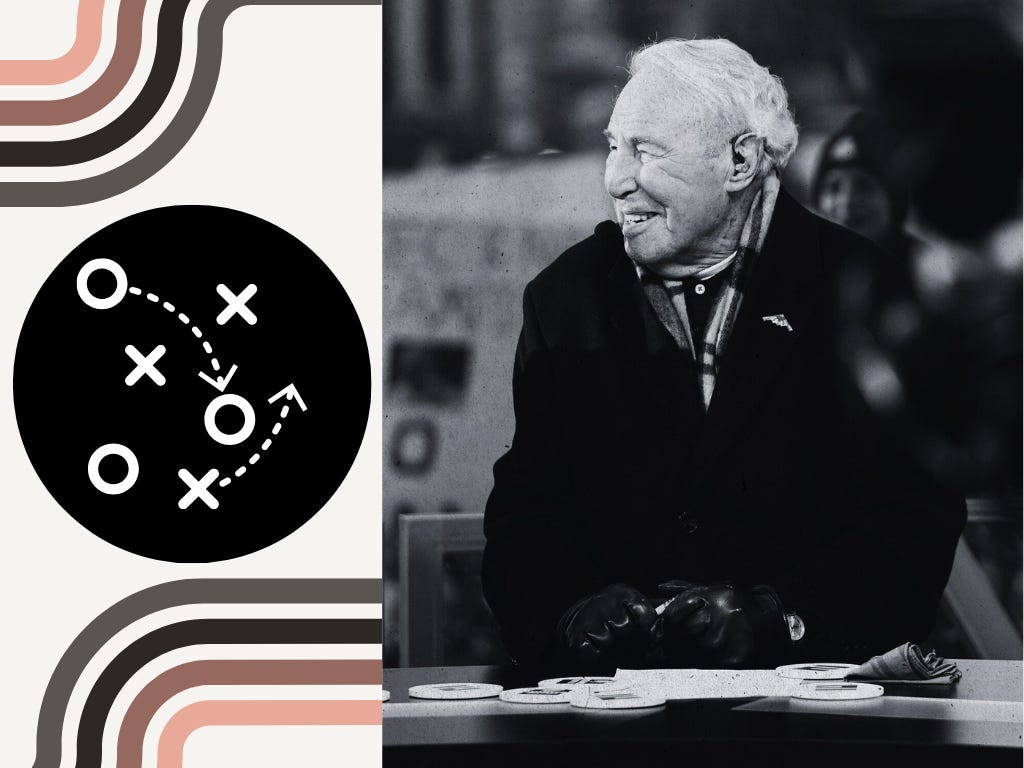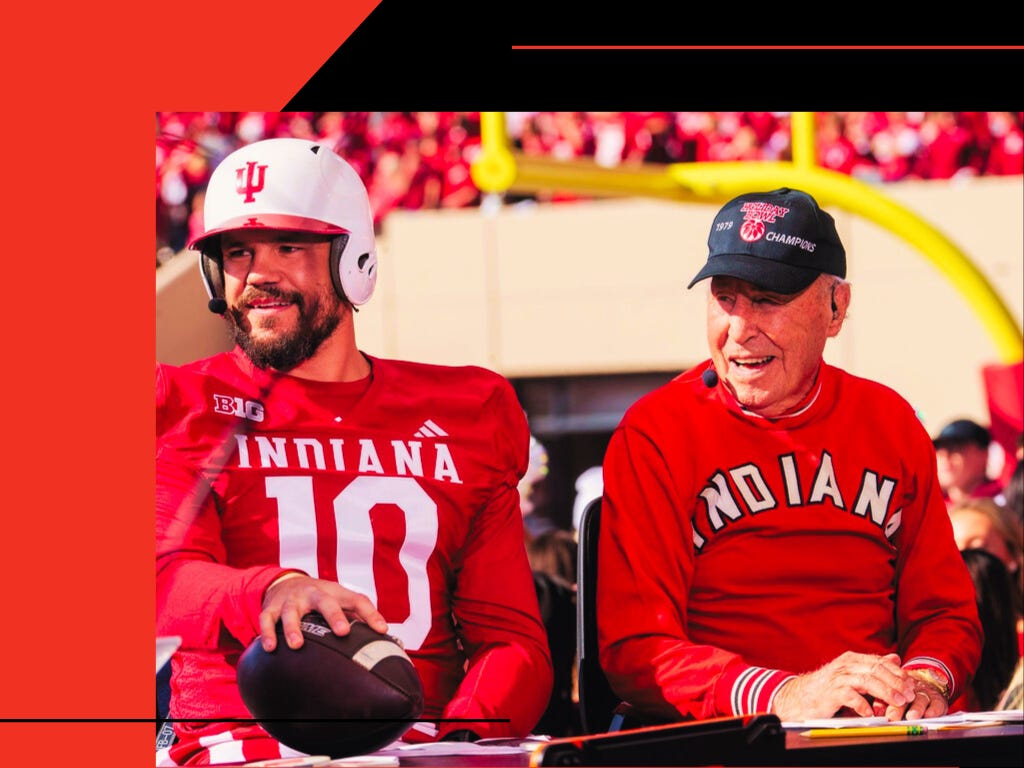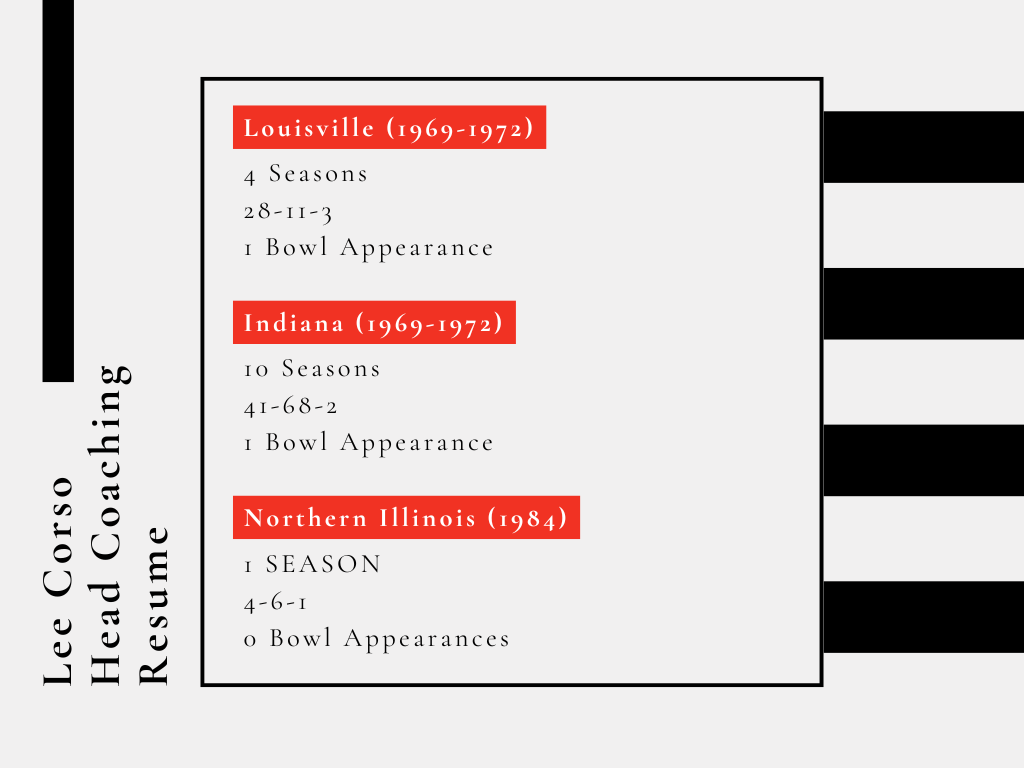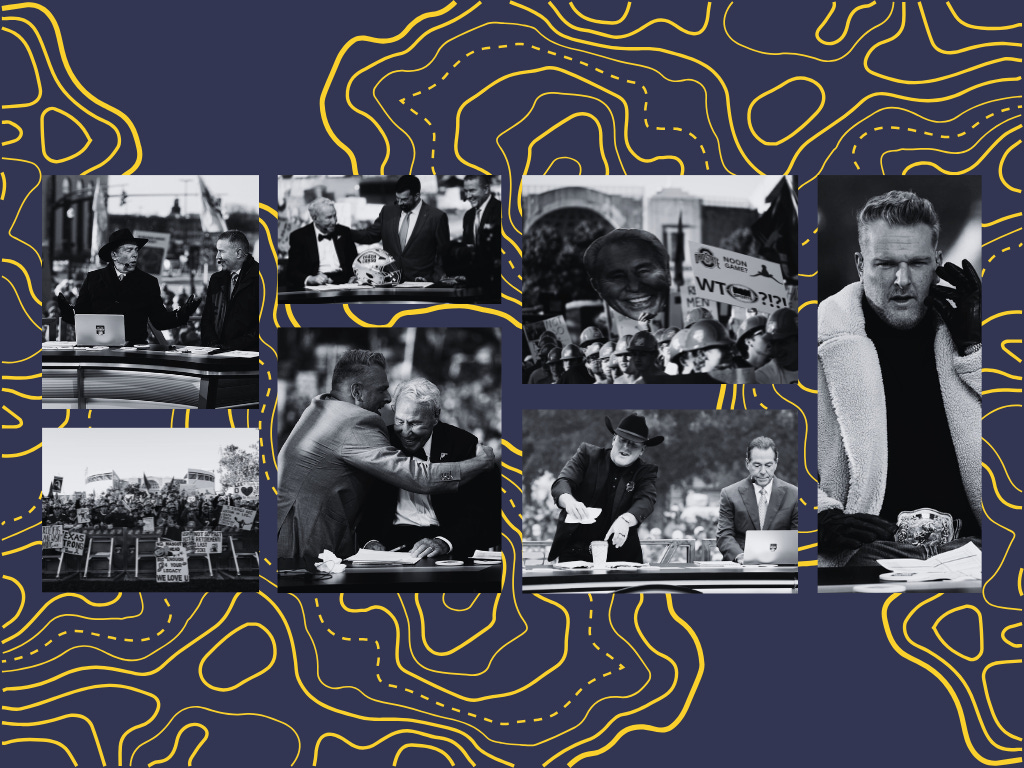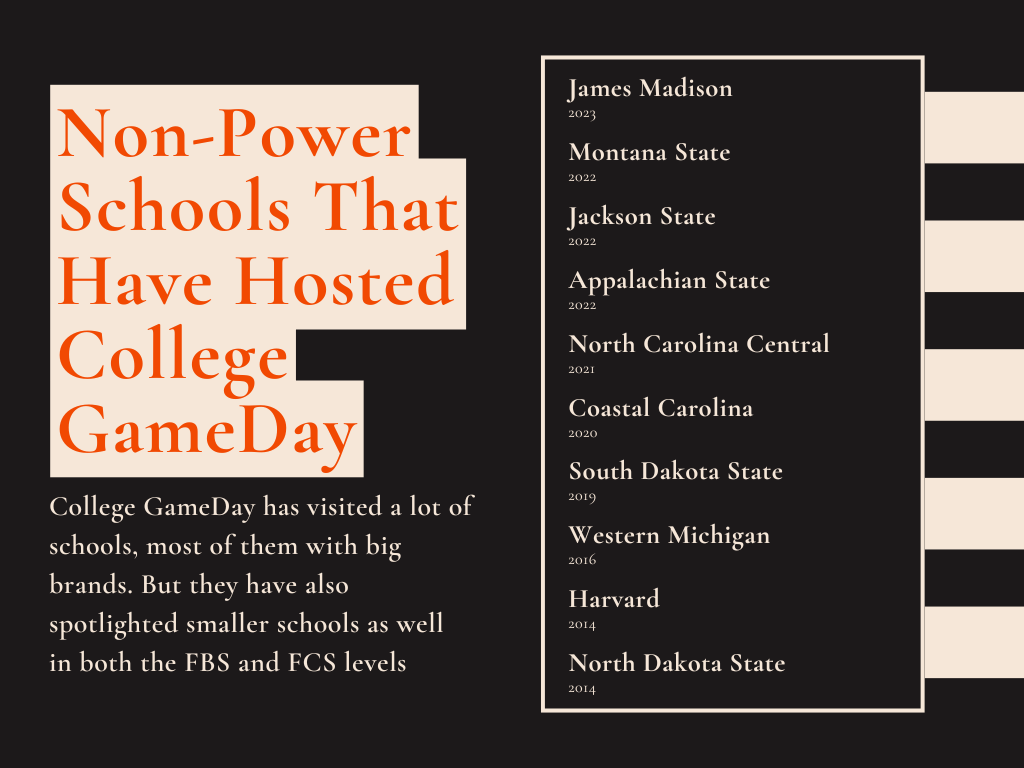Lee Corso’s Exit & the Last Remnants of Old College Football
For nearly 40 years, Lee Corso was the heartbeat of Saturdays. His retirement marks the end of an illustrious career and highlights the sport’s continued transformation
After nearly 40 years on the set of College GameDay, National Sports Media Association Hall of Famer and former head coach Lee Corso is calling it a career. Corso left the broadcasting world and the show with a flourish of excellence—indicative of the sort of career he had with ESPN.
In his final appearance on the network’s flagship college football program, Corso correctly predicted his final headgear pick, picked every game the show previewed correctly, and all the teams he coached in his career won on that Saturday. It’s a storybook ending for a figure that has been a part of Saturday mornings in the fall for decades. More than anything, Corso was a steady reminder of the old world of college football, an institution that continues to be remolded and reformed. With his exit, the reminders of the past become fewer as college football continues to evolve.
Good Coach, Legendary Analyst
While we know Corso most for his time on ESPN, he had a very long career as a football coach from 1958-1985. He started as a graduate assistant at his alma mater, Florida State, then as a position coach at Maryland and Navy before getting his first head coaching gig at Louisville. In 1970, he took Louisville to its second-ever bowl game in program history. But Corso’s coaching career is best remembered for his next job as the head coach of Indiana.
When Corso arrived in 1973, the Hoosiers had only had two winning seasons since 1950—they were inept in every sense of the word. And after a rough start, he led them to three winning seasons in four years, culminating in a victory over the ninth-ranked BYU Cougars in the Holiday Bowl. After 10 seasons, Corso was fired by the Hoosiers after two losing seasons. He spent his last two years coaching losing teams at Northern Illinois and the Orlando Renegades of the USFL before transitioning to the media world.
In the grand pantheon of college football coaches, it’s fair to say that Corso was average. He never won titles or competed at a national scale—but much of that is due to his coaching at programs that were deprived of success before his arrival. In his 15 years as a head coach, Corso amassed a 73-85-6 record, winning only 46% of his games.
After a one-year experiment in the USFL, which was shut down, Corso was then hired by ESPN in 1987 and has been the face of College GameDay, the network’s premier college football pregame show, ever since. In many ways, Corso became to college football what the late John Madden was to the NFL as it surged in popularity during the same period.
Corso offered an approachable presentation of college football that represented the pageantry, passion, and unique qualities of the game. Madden, similarly, represented the everyman who watched the NFL and diagramed plays and schemes to make a complex game easier to understand. Both were prominent fixtures in video games, with EA Sports naming their NFL franchise after Madden and Corso being featured in various iterations of its NCAA Football series. On College GameDay, Corso brought an energy that channeled the environments where they aired the show—college campuses filled with passionate students who were there for a great time and to root for their school.
Corso’s headgear pick, which became famous as the way the show ended before the kickoff of the first slate of games, became a sort of ritual before watching hours of college football on Saturdays. His punchline, “not so fast, my friend,” fed into the chaotic nature that is a college campus before a big game.
In that way, the artist was a perfect fit for the art. Corso toed the line between being entertaining and being corny with incredible elegance. His analysis was never overly deep, but it was filled with the sort of bravado and swagger that fit right into college football culture. That very culture that Corso embodied on the show, however, is fast fading in favor of a more corporate and commercialized college football experience—and in that way, he was one of the last remnants of what college football used to be.
A Reminder of What College Football Used to Be
When Corso was at the peak of his analyst popularity, college football was a different game. It was much more regional, with conferences that prioritized local rivalries, and there was a notion of school pride underpinning the proceedings. Despite the dealings of various programs through that time, Corso was a reminder of why so many of us gravitated towards the sport. This was a game where young athletes were maturing and advancing in front of our eyes, playing in front of their peers with a pageantry and flair that simply wasn’t seen in professional sports.
But the state of things is never stagnant, and there is always movement taking place. Players were undervalued as revenue generators for years, and finally were able to be paid with NIL collectives. The transfer portal has become a vital tool for player agency and movement to the best situation for them. Corso represented the era that came before that, where players (for better or worse) were tied to the program that they chose and developed a bond with the school and community.
Corso coached at schools that were never in the national title mix, and as a result, became a voice from that perspective, which ran in contrast to the lens of teams that were massive on a national scale. This often included the sort of motivational coach speak and self-assuredness that someone who coached at a school like Indiana needs to have.
The show traveled to various locations over the years, and to be fair, most of the locations were power schools like Florida State, Ohio State, and Alabama. But College GameDay also traveled to schools like Air Force, Harvard, Army, Grambling State, and Bowling Green. In this way, the show spoke to the whole college football landscape—not just the power conferences. That representation spoke to the true passion of college football. It was a sport of small schools and local rivalries in addition to being a national spectacle, and no one signified that better than Corso, considering his style of delivery and his background.
The college football of today has morphed into a more professional atmosphere, with major schools bringing in general managers to allocate their NIL funds and players leaving over contract disputes. It is filled with realignment, turning it into a more sanitized national sport. It is not the game and world that someone like Lee Corso came up in. And in recent years, it’s become clear that the end for Corso was near, as he has gotten older, and the game has changed so much and so rapidly. To me and others in my generation, he will always represent what college football used to be, and we can look fondly back at it, even if the system then was flawed in a different way. As he exits, it is fair to say that he may be taking the remnants of college football’s previous era with him.
The Last Vestige of the Past
When ESPN signed Pat McAfee to join the College GameDay cast in 2022, it seemed that the writing was on the wall in terms of the torch being passed from Corso. In the first week without Corso, the headgear pick was retired, but McAfee took center stage, making the final pick—in a short monologue reminiscent of a pro wrestling promo. The transition from Corso to McAfee is symbolic of the shift that has occurred in college football and sports in general. With his frat boy persona, the sport is embracing loud as opposed to the deliberate energy of Corso.
McAfee is, of course, a phenomenal success story in sports media. After his NFL career, he transitioned into media and grew his independent Pat McAfee Show into a YouTube phenomenon en route to signing lucrative deals with FanDuel and eventually ESPN. McAfee’s style, however, is a reminder of the Barstool-esque shock jock renaissance that we have experienced in sports media since 2019. McAfee and others like him have shied away from being considered media members, instead leaning into their roles as content creators and cultural taste makers.
The trouble with this versus the fun-loving college atmosphere approach that Corso championed is that decisions are often made to garner views, as opposed to having a good-faith discussion about the sport. In McAfee’s case, this was evidenced by his willingness to spread a fake sex scandal about Mary Kate Cornett, a 19-year-old Ole Miss student, on his show, which resulted in her being harassed online and the false claim being amplified by his platform. This was an example of McAfee (who is 38 years old) attempting to weigh in as a cultural tastemaker—only to lead to disastrous results.
While McAfee and others like him are trying to have fun in the world of college football, the vibe is a little different than Corso’s. Where Corso focused on the pageantry and tradition of the game, McAfee seems to lean more towards the partying side of the equation. In essence, it’s like going from a PG movie to a rated R one on the same topic. And that shift may be the biggest indication that Corso was the last of a dying breed.
College football these days has made the traditional aspects that drew fans in secondary. The regionality has been replaced with national appeal, betting sponsorships litter broadcasts, and it has, in many ways, started to feel like NFL Lite. The Big 10 and SEC continue to dominate conversations and seem headed towards a sort of two-conference super league, while the disparity between big schools and their smaller counterparts continues to erode.
It can be said that in his own way, Corso’s presence was a reaffirmation of college football’s middle class, where team culture and good coaching ruled the day. It is simply not that sport anymore, and as Corso fades into private life for the remainder of his life, his exit is a reminder of what the game used to be and how it may never be the same ever again. As such, it was poetic that he got his final pick, Ohio State over Texas, right. That all the teams he coached won their matchups, one more time for a titan of the sport and a legend that many of us will remember forever.


